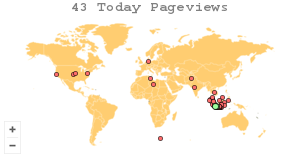MENAKAR KEDUDUKAN AL-MAL DALAM EKONOMI ISLAM
(Studi Tafsir Tematik Ayat-Hadits)
DOI:
https://doi.org/10.47498/bashair.v1i1.556Keywords:
Islamic Economics, Thematic Tafseer, Al-MalAbstract
The Islamic economic system gives individuals freedom in economics. Encourage individuals to work and not deny individual ownership of the world's property. But on the other hand, Islam invites individuals to love and love their fellow Muslim brothers and include them for the gift of their wealth. The term HARTA, or al-mal in the Qur'an or Sunnah is not limited in the scope of a certain meaning, so the understanding of al-Mal is very broad and always evolving. The criteria of property according to fiqh experts consist of: first, it has an element of economic value. Second, the element of benefits or services obtained from an item. Islamic view of property can be described as follows: 1), The Absolute Owner of everything on the earth is ALLAH SWT. 2), the status of human property is as follows: a. property as a trust (deposit) from Allah SWT. Man is only a trustee because he is not able to hold things from nothing. b. Treasure as a living adornment that allows man to enjoy it well and not excess. 3), Ownership of property can be done through efforts ('deeds) or livelihoods (Ma'isyah) that are lawful and in accordance with the rules of God. 4) it is forbidden to seek property, try or work that forgets death, 5): it is forbidden to pursue illegal business.
References
al-Asqalani, A. b. (1986). Fath al-Bari Syarah Shahih Bukhari. Jilid 1. Kairo: Maktabah Salafiyah.
al-Daghamin, Z. K. (1995). Manhajiyyat Al-Bahth Fi Al-Tafsir Al-Mawdu'i Al-Qur'an Al-Karim. Amman: Dar al-Bashir, 1995.
al-Damsyiqi., I. H.-H.-H. (2003). Asbab al-Wurud Latar Belakang Historis Timbulnya Hadis-Hadis Rasul. Jilid 2. Jakarta: Kalam Mulia.
al-Farmawi, A. a.-H., & Jamrah, S. A. (1996). Metode Tafsir Maudu‟i Suatu Pengantar. Jakarta: PT. Raja Grafindo Persada.
al-Farmawi, A. H. (1977). al-Bidayah fi-al-Tafsir al-Maudhu’I. Kairo: al-Hadharat al-Gharbiyyah.
al-Khalidi, S. A.-F. (2001). Al-Tafsir Al-Maudu'i Bayn Al-Naẓariyyah Wa Al-Taá¹biq. Jordan: Dar al-Nafas'is.
al-Marbawi, M. I. (1931). Kamus al- Marbawi. Mesir: Mushthafa al-Babi Al-Halabi.
al-Mubarukufi, A. a.-‘.-R.-R. (n.d.). Tuhfatu al-Ahwaz Syarah Jami’ al-Tirmidzi Jilid 1. Bait al-Afkar al-Adawiyah.
al-Nawawi, Y. a.-D. (n.d.). Al-Minhaj fi Syarh Shahih Muslim bin al-Hajaj Syarah al-Nawawi ‘ala Muslim. Baitu al-Afkar al-Dauliyah.
al-Umari, A. J. (2001). Dirasat Fi al-Tafsir al-Mauá¸u'i Li al-Qasas al-Qur'ani, 2nd ed. Kairo: Maktabat al-Khanji.
Al-Yusu'i, L. M. (1927). al-munjid. bairut: al-Katulikyyah.
Haroen, N. (2000). Fiqh Muamalah. Jakarta: Gaya Media Pratama.
Idri. (2015). Hadis Ekonomi (Ekonomi Dalam Perspektif Hadis Nabi). Jakarta: Prenadamedia Group.
Munir, M. (2007). Ajaran-Ajaran Ekonomi Rasulullah Kajian Hadis Nabi dalam Perspektif Ekonomi. . Malang: UIN-Malang Press.
Muslim, M. (2000). Mabahith Fi Al-Tafsir Al-Mawdu‟i. Dimashq: Dar al-Qalam.
Rahman, F. (1999). Major Themes of The Qur'an, 2nd ed. Kuala Lumpur: Islamic Book Trust.
Suwiknyo, D. (2010). Kompilasi Tafsir Ayat-Ayat Ekonomi Islam.
Syafei, R. ( 2001). Fiqih Muamalah. Bandung: Pustaka Setia.
Tarigan, A. A. (2012). Tafsir Ayat-Ayat Ekonomi Al-Qur'an: Sebuah Eksplorasi Meulalui Kata-Kata Kunci. Medan: Cita Pustaka Media Perintis.
Wensinck., A. (1936). Al-Mu’jam al-Mufahras lil al-fazi al-Hadis al-Nawawi, jilid 6. Beirut : Libanon.
Yusuf, Y. (2010). Tafsir Juz ‘Amma: As-Siraju al-Wahhaj. Jakarta: Az-Zahrah-Pena Madani.
Downloads
Published
Issue
Section
License
Authors who publish articles in Basha'ir: Jurnal Studi Al-Qur'an & Tafsir agree to the following conditions:
- The author retains copyright and grants the Basha'ir Journal the right from the first publication with the work simultaneously licensed under a Creative Commons Attribution-ShareAlike 4.0 International (CC BY-SA 4.0) license that allows others to make changes, adjust and build on the work with recognition of the author's work and initial publication in the Journal.
- Authors are allowed to copy and redistribute published versions of works in journals (for example, posting them to institutional repositories or publishing them in a book), with recognition of their initial publication in Basha'ir: Jurnal Studi Al-Qur'an & Tafsir.
- Authors are allowed and encouraged to post their work online (for example, in institutional repositories or on their websites) before and during the submission process, as it can lead to productive exchanges, and increase citations of published works






